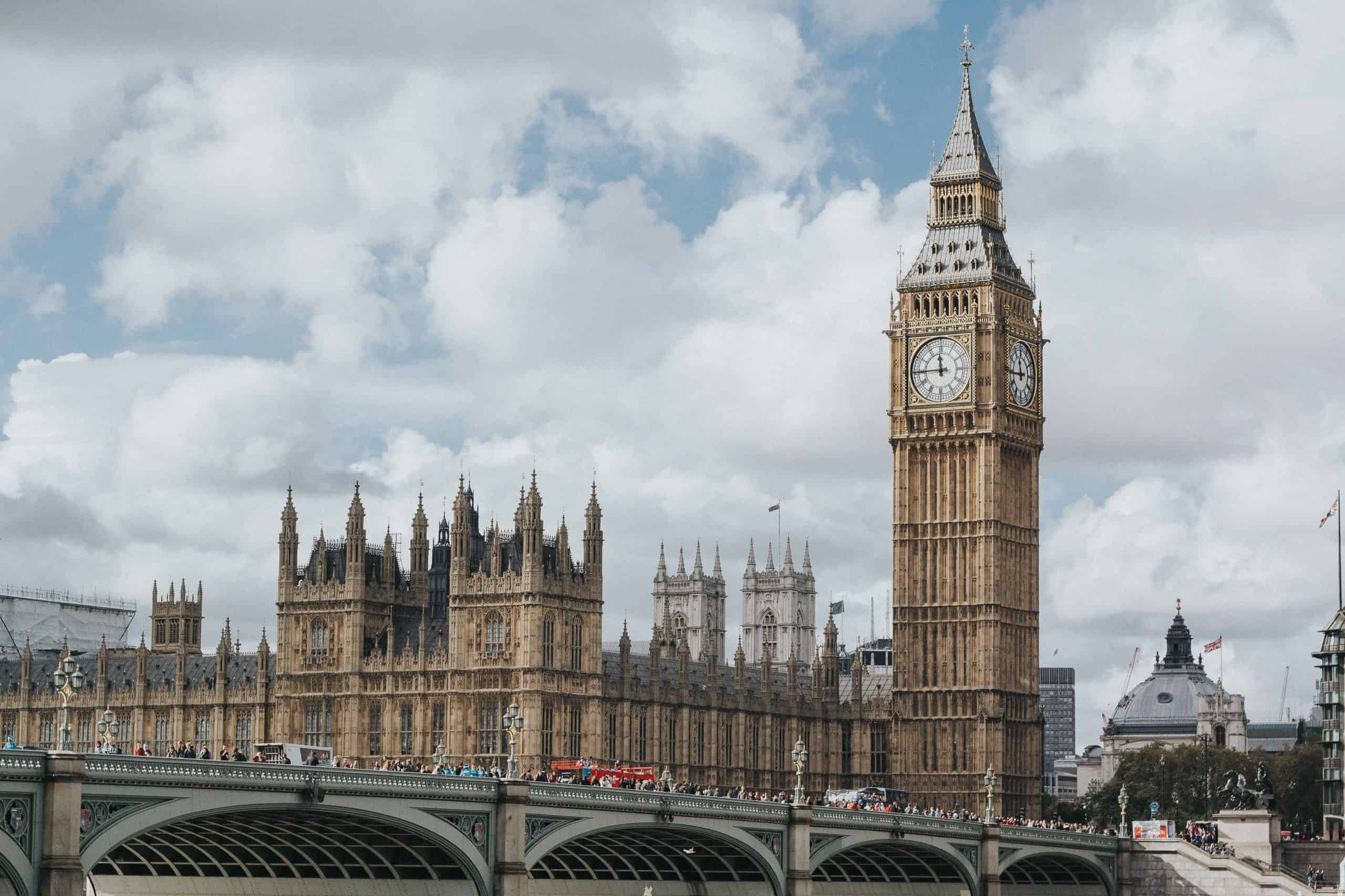
PR lessons from fast-moving politics: key trends and tactics in play
With election campaigns almost at a close and social media having been a key battleground, we take a helicopter view of some of the tactics political parties have been using – and observe how the speed and complexity of communications is so important in any fast-moving digital campaign.
In a world where public debate is increasingly polarised, the PR, content-writing and campaign planning skills of an agency like Babel can help clients navigate this complex landscape, capturing the zeitgeist without tripping up. Many of the tactics and techniques we’ll cover are not exclusive to the political environment; businesses can learn from them too.
If we look closely at some of the digital strategies employed in recent UK elections, and the trend for ‘weaponising’ social media to target voters, it’s clear that some techniques are better suited to business than others, and some have no place in either business or politics!
The darker side of social
Cambridge Analytica’s data breaches of 2015 exposed the darker side of micro-targeting, when the private information of more than 50 million Facebook users was harvested on an unprecedented scale and used for political campaigns and advertising now widely considered to be underhand. The posts, likes and shares of potential voters were taken and categorised for the purpose of niche messaging in paid adverts, potentially stimulating behaviour they may not have engaged in, or swinging the ‘undecided’ in a different voting direction.
The revelations forever shifted how we viewed social media, as well as showing us how the world had changed – as have the rules of engagement that go with the internet; big tech, advertising, privacy and messaging. The rule book is constantly being rewritten.
The team here at Babel regularly scrutinise the latest campaigns and tactics we see in the market, so we can advise clients on what to consider trying, as well as how to follow best practice and avoid any potential (unintended) backlash.
While micro-targeting messages to drive behaviour change is a sound tactic that can be used in business campaigns, there are questions that need to be addressed around data-sourcing and regulatory compliance that Babel – as a PRCA member – would seek to answer before rolling out this kind of campaign, where other less ethical organisations may not.
How low can you go?
For some, the Conservative Party press office’s rebranding of its Twitter account as ‘factcheck UK’ was too much to handle; a deliberate attempt at deceiving Twitter users. Unassuming people could have been forgiven for believing it was a genuine fact-checking service, from a cursory glance.
In this instance, Twitter issued a ‘yellow card’ to @CCHQ alongside a statement to reaffirm its policies and warning that any further attempts to mislead people during the election would result in decisive action. But to what effect? And as with ‘all things internet’ the damage was instant.
To understand how this happened, and how the Tories know just how much to push the boundaries, you need to look to the hiring of CTF Partners’ alumni Sean Topham and Ben Guerin. These two digital campaigning experts from New Zealand were drafted in to improve the Conservative Party’s online effort, in the wake of a disastrous 2017 election when Labour outclassed them in all aspects of their internet campaign.
CTF Partners is led by Lynton Crosby (a long-time associate of Boris Johnson) and is widely reported to have used Facebook to run a large-scale disinformation network on behalf of paying clients – some have accused the Kiwi duo of being involved in this work. However, the two are best known for their work on the Australian campaign trail supporting Scott Morrison’s general election win with a new style of campaigning, dubbed ‘shitposting’ by the media, for deliberately stirring up debate and driving interactions with creative content.
Posting social tiles with text in Comic Sans, knowing fine well that the typeface is widely mocked and doing so would generate huge swathes of criticism from media and opposition alike, is just one example of this technique in action. Such a simple idea resulted in unprecedented numbers of organic shares of a key campaign message, reaching millions of prospective voters – that is no mean feat.
Is defence the best form of attack? Do people want to consume positivity?
Labour’s social media campaign in 2017 was undoubtedly the better of the two major parties. Most digital strategists will admit that the Labour party’s use of Facebook, Twitter and online videos to motivate third-party groups and therefore voters (often in oft-overlooked constituencies) rather than just attacking the Tories, amounted to a much more active social following and supportive campaign base. However, the digital world moves quickly – campaign tactics that dominated the last election quickly become old hat, or worse, obsolete. The future role of some of these techniques remains uncertain.
In the last few weeks Twitter banned paid political advertising, prompting campaigners to work very hard at spreading campaign messages organically by engaging and growing their existing communities. While Facebook still allows paid political advertising, the debate around this is contentious. So much so that web founder Sir Tim Berners-Lee recently called on Mark Zuckerberg to stop selling targeted political adverts saying it is “unfair to risk democracy by allowing all these very, very subtle manipulations to promote completely false ideas”.
Regulatory alignment of media landscape
Acknowledgement that current regulation does not meet the demands of a fast-moving digital environment is widespread. But when the platforms cross not only borders but continents, the bodies with the weight and authority to regulate them with swift and meaningful repercussions simply do not exist yet.
We’ve seen bots automatically generating messages designed to create misleading trends. And we’ve read accusations of a report on Russian meddling in both the Brexit vote and the UK polls being suppressed. As such, it’s difficult to have confidence in any information created by vested interests during this election period.
Under UK law, political adverts on both TV and radio are banned, with Ofcom enforcing this ban – but the parties can qualify for party election broadcasts, based on current and past levels of electoral support. More than ever, TV debates and interviews provide an opportunity for fair and balanced analysis of policies and agendas with leaders held to account without editing and dark arts at play. There’s something refreshing about the integrity of a Q&A format and seeing the honest responses (and the whites of their eyes) in real time on prime-time television – if the leaders turn up that is!
Levelling the media landscape: looking to business to uphold scrutiny
The regulation of social media and activity of TV presenters, journalists, newsreaders or other political candidates is almost non-existent – to some extent the Information Commissioners Office (ICO) plays a role, but with its current powers and levels of funding its ability to change behaviour is minimal. This virtually unregulated landscape will need to be addressed to ensure campaigning is fair, ethical, and transparent – in both business and politics, though the latter is clearly the problem child.
Babel can help you keep on the straight and narrow
Some brands’ social media communications are becoming increasingly informal; so it’s more important than ever to engage professional PR counsel to ensure messages are delivered to the right people, in the right way, at the right time. Babel can help you do this, deploying a combination of data-driven insights and human expertise, to help you execute extraordinary campaigns that keep you on the right side of ethics and emerging trends.
Our clients often ask us about the latest tactics and trends in the market, and how they can replicate or recreate them. Sometimes the inspiration may have come from competitors, sometimes another industry, and sometimes even politics. It’s fair to say that some of the methods deployed during political campaigns are at the cutting edge of communications, but not all are suitable for businesses. We can help advise where the lines are, what can work, and what is out of step with the tone of the organisation.
For example, the kind of ‘shitposting’ deployed in the Tory party’s 2019 campaign are well worth considering for consumer brands with the right following and tone-of-voice. Organisations like Innocent Drinks have used this kind of content to drive engagement and affinity with its brand for a long time. But if a publicly-listed natural resources company tried something similar, it simply wouldn’t have the intended effect.
Our integrated communications experts can help clients design and deliver campaigns that are at the cutting edge and generate tangible commercial outcomes. If you’re looking to up your social media game or try something new, why not get in touch to see how you can beat the competition, without falling foul of the courts – be they legal or of public opinion.





